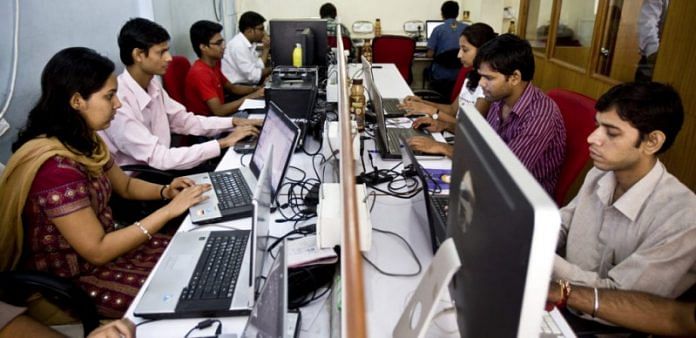A key issue identified by NCW is lack of an authority to ensure a proper mechanism exists to monitor implementation of law.
New Delhi: Some key issues identified in a consultation held by the National Commission of Women (NCW) on the Sexual Harassment of Women at Workplace Act were that it was not clear on “prevention” and there was no authority to ensure a proper mechanism for monitoring its implementation.
Amid the #MeToo storm, the NCW had decided to take up the review of the Sexual Harassment of Women at Workplace (Prevention, Prohibition and Redressal) Act, 2013 to examine whether its existing provisions require any amendments.
“In light of the commission receiving petitions from women explaining past experiences of sexual harassment at their workplaces, and also considering the recent spurt in sexual harassment reported in the media, it was decided to take up the review of the Sexual Harassment of Women at Workplace (Prevention, Prohibition and Redressal) Act,” the NCW said.
The consultation saw the participation of experts, including judges Sujata Manohar (retired), G Rohini (retired), Anuradha Paul, Assistant Solicitor General of India, Meghalaya and other stakeholders.
The experts held deliberations on the various lacunae identified in the act and made recommendations for its proper implementation in addressing the issues of sexual harassment of women at all workplaces in the country.
The act is not clear on “prevention” and there is no authority to ensure a proper mechanism for monitoring its implementation are some of the key issues identified in a consultation, the statement said.
The consultation also expressed dissatisfaction with the composition of the Internal Complaints Committee (ICC).
“Options available to the victim, if she is not satisfied with the process of inquiry and report by the ICC is not clearly defined in the act. Monitoring authority and appellate authority must be defined and established, like a nodal agency,” they recommended.
The conciliation clause in the act has to be reviewed and there is a lack of awareness among majority of the employees working both in organised and unorganised sector, it said.
The #MeToo movement started with actor Tanushree Dutta accusing another actor Nana Patekar of harassing her during the shooting of a Bollywood film in 2008. Patekar has denied the allegations.
The movement intensified sharply as more and more women coming forward with their complaints against men in seats of power in various institutions, including in entertainment, media and advertising.
Journalist-turned-politician M J Akbar had to resign as the minister of state for external affairs following a spate of complaints of alleged sexual harassment during his tenure as editor of various media publications.
He has denied the allegations and has even dragged one of the complainants to court with a defamation case.
Other prominent personalities who have been accused of sexual misconduct include Subhash Ghai, Sajid Khan, Alok Nath, Suhel Seth and Jatin Das, all of whom have denied the allegations even as multiple women have spoken out against them. – PTI



